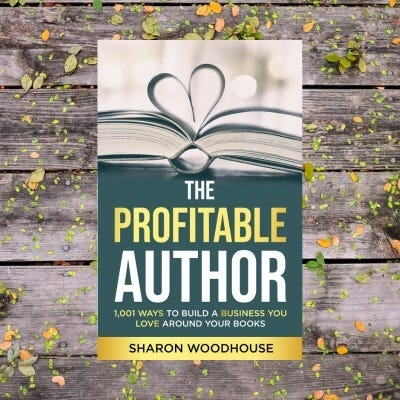Authors, AI Read My Book and Told Me I Was Wrong
Using the wisdom of the crowd, the bots, and the pros

In the 1990s, well before anyone could self-publish a book on Amazon and ebooks were a thing, I joined a group of about 40 self-publishers in my city who had each invested serious money in thousands of paperback and hard cover books that were sitting in their basements, garages, or rented storage units ready to sell. I was the youngest of the group, the only one with no established career, probably the one with the smallest bank balance, and 30 years later I have gone the farthest of all of them in the world of publishing. One of only a handful that even made it past the first year or two.
I knew nothing and knew I knew nothing, so I was not too proud to ask questions, make mistakes, and learn.
I did not have a bank-load of money nor the overconfidence from other businesses successes to lose wild amounts of money as so many did, so my losses were modest and they instead became the foundation of future successes.
The biggest thing I had going for me was that I had an ear for advice: Knowing who to listen to in the publishing world and who not to. Knowing what rang true and absorbing that into my knowledge cache — and knowing what required a bit of skepticism.
I still have an ear for advice, so even though I can now trust my gut, my experience, my experiments, and my data when it comes to books and publishing, I also know when to trust the bots, the crowd, and the pros.
Recently I turned to all three — bot, crowd, pro — in three narrow aspects of producing my most recent book: The title, the cover, the back cover copy.
And I followed their advice over my own gut and I think my book and I are better off for it.
Here’s a mini-case study on relying on different types of others.
The Mechanical Hive Mind — Wisdom of the Bots
“Business Education and Support for Authors.” That’s what I was going for. I’d been working on my own book for its early 2025 release, a compilation and distillation of 300 of my best articles for authors on book marketing and building holistic, income-generating businesses they love. When I dumped the first 200 of 500 pages into an AI program, the LLM (Large Language Model) beast told me a few things I hadn’t thought about previously but recognized as true:
It told me what the actual highlights of my book were. (I had missed at least three of them.)
It told me when and in what way these highlights overlapped with authors’ top 10 pain points.
And it told me that “Business Education and Support for Authors” was a boring, uninspiring phrase (regardless of its inherent accuracy and value) and the better one was: The Profitable Author.
No matter what I asked or how I phrased it, the beast returned again and again to the phrase, The Profitable Author, as a critical and appealing three-word summary of my book.
I recognized the wisdom of this modern-day oracle and took it to the next filters: Google, GoDaddy, and the miasma of hashtags. Yes, it was used, but minimally, with no clear owner, and so I decided to grab it for my own endeavors. Thus began the titling of my book, thanks to the wisdom of the bots: The Profitable Author: 1,001 Ways to Build a Business You Love Around Your Books.
AI is not for everybody or every situation, but it does have many useful applications that shed light from the wellspring of collective human content.
Your Customers — Wisdom of the Crowd
Right before the crowds of social media amplified the dumb, there was The Wisdom of Crowds, a seminal book by James Surowiecki (Vintage, 2005), on the ways and whys crowds often make better decisions than individuals. You probably know when to turn to this wisdom for your author affairs as you scour LinkedIn, Reddit, or Quora for answers to your most exasperating publishing questions; as you grill your fellow authors for their input on marketing; as you take some sort of qualitative average of posted reviews left for your titles.
While I’m professionally capable of sourcing and supervising design work for my clients, when it comes to the design of my own books, I become uncharacterstically stalled by uncertainty, a design dolt. Three times I have turned to the crowdsourcing site 99Designs rather than rely on one of the amazing designers that I have worked with for years. I do not feel great about this. But the site makes it so easy to see a bounty of designs and umpteen iterations of those designs — and then to poll others on the one they prefer. And I know that’s what I need in this situation — the wisdom of the crowd. Because never is my first, second, third, or fourth choice ever the crowd favorite. Usually the crowd easily favors one design and it’s a strong design that I like enough and can live with. It doesn’t ring my aesthetic bell, but I get it. I get why it’s the right cover and I defer. See what was the clear crowd favorite — and now the actual cover — for The Profitable Author.
The Persuasive, Pscyhological Marketers— Wisdom of the Pros
Copywriting is a skill. A valuable one. One worth learning. One, in fact, that takes training and practice for most. There are proven ways of persuading others, of stirring their emotions, of inspiring them to take action. Which is why any author should use the tricks of the copywriting trade when penning the most important paragraphs of their book: the back cover text.
Even three decades into self-employment, I have consciously absorbed and retained minimal knowledge as far as copywriting goes. Though my ear for marketing language can carry me in most situations, there’s a cheat sheet (below) I refer to for high-stakes situations like website copy and the backs of book covers.
Jonah Malin’s article is a godsend for those of us without formal training in the persuasive utterances of copywriters. He gives us 69 words (use them!) in eight different categories with brief explanations of why such terms pack a punch: Words that Build Trust (quality, endorsed); Words that Breed Desire and Inspire Action (exclusive, surprising); Words that Sell to Humans (small-batch, miracle); Words that Create Wonder (discover, you); Words that Energize Ordinary Senses (rejuvenating, attractive); Words that Tug at the Heart (adventure, crave); Words that Create Urgency (immediately, expire); Words that Make My Knees Weak (digress, avalanche).
After my first draft of my forthcoming book’s back cover, I reviewed Malin’s list of words and selected the ones that were natural fits for what I wrote (several were already in the doc) and gave another go of it, using these pro-approved words:
Proven
Secret
Custom
Tailored
Experience (x2)
Empower
You (x6)
Love (x2)
Essential — (x2)
With yet another draft, I added a few more (see final here):
Tested
Achieve
Now
And, I put these aside for future use for the website:
Endorsed
Ultimate
Results
Signature
Discover
Possibility
Imagine
Curious
Let us know below. In your most recent big author decision, whose wisdom did you rely on: the crowd, the bots, the pros, or your own?
Try one month of a full subscription with us and see what 27 cents a day can do for your author goals and growing author business. We’d love to have you.




